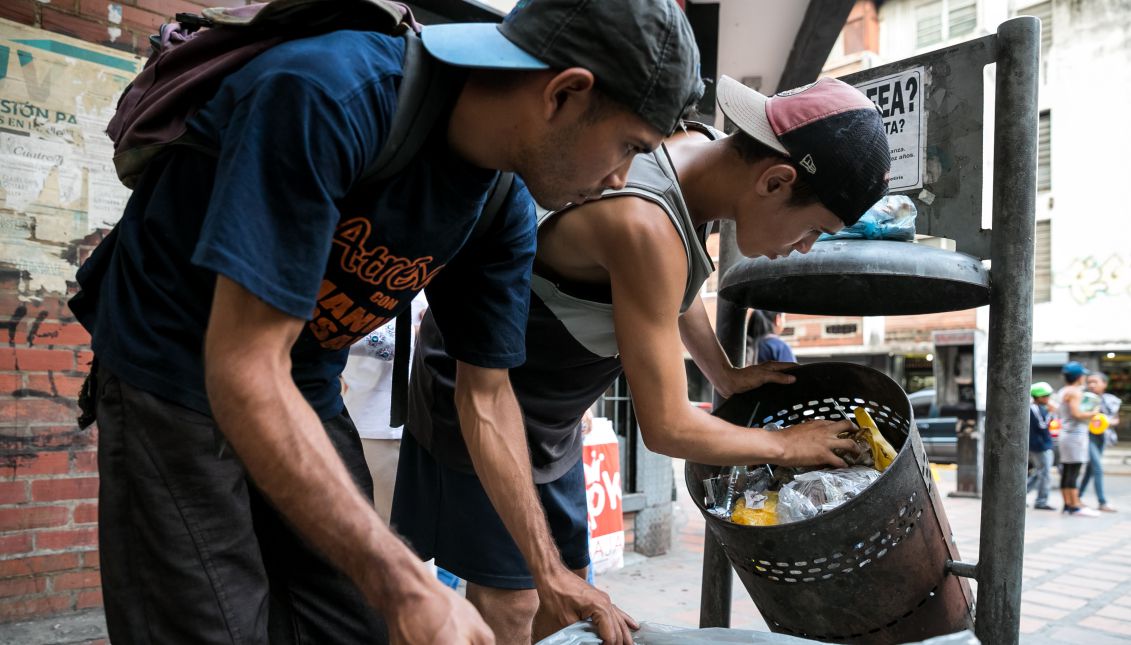
Children roam the streets of Caracas hunting for food
More and more children roam the streets of Caracas for just one reason, which, according to human rights activists, is the lack of food at home.
Sometimes the youngsters are accompanied by brothers or sisters, friends or neighbors, but there are also cases of families that have lost their homes and now all their members spread out to beg for food or rummage through trash cans for something edible.
Alex and Tomas, ages 14 and 10 respectively, go around the Caracas municipality of Chacao asking passers-by for something to eat.
Alex told EFE that they are two of 12 siblings who live in Petare, the largest shantytown in Latin America, located in Sucre municipality on the east side of Caracas.
Their mom sells cakes to support the family but doesn't earn enough, so the 12 kids go out scrounging for food with her permission.
According to the latest study by the Caritas Organization of Venezuela, 35.5 percent of all poor children up to age 5 have some symptoms of malnutrition, while 41 percent beg for food or look for it in the rubbish.
The coordinator of the Friends of the Child who Deserves Protection (Fundana), psychologist Ninoska Zambrano, told EFE that "the current situation is a situation never seen before" in Venezuela, when asked about the increase in the number of youngsters foraging and begging in the streets.
"In the mid-1990s we saw many youngsters in the streets, but what we're seeing now is much more serious because they're not just prepubescent, children between 10 and 12 years old - pre-teens - but rather what we're seeing are tots who are much smaller," she said.
Zambrano said that Fundana has a capacity for providing 100 children with residential protection in its shelter and in the so-called "Villas Los Chiquiticos" (The Little Ones' Villas), and which, in view of the emergency situation, has opened 30 more places.
She also said she has found that "in Petare there are little girls who are being sexually exploited in exchange for a quantity of food."










DEJE UN COMENTARIO:
¡Únete a la discusión! Deja un comentario.